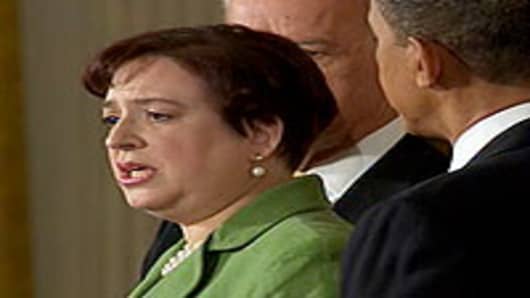No doubt there will be lots of snickering about how Barack Obama’s supposedly liberal Supreme Court appointee sided with the credit card company, while Justice Antonin Scalia—the sole dissenter—sided with the figurative litte-guy.
But it’s worth noticing something more serious here. The court got the case wrong. It got it wrong not just on technical legal grounds. It also got it wrong in terms of public policy.
In a great many ways, our legal and tax system is set up to encourage consumers and corporations to encumber themselves with debt. Interest payments on corporate debt are tax-deductible. Mortgage interest is tax deductable. The government backs student loans that saddle college graduates with unconscionable levels of debt.
The list is practically endless. But the end result is very clear: the United States developed into an over-leveraged society. The financial soundness of most American families and many American businesses is very fragile. The American people live lives that are far less free as a result of this fragility. Our options are narrowed, our need for a salary greatly increased.
Today’s decision is just an extension of the incentivization toward indebtedness. It is based, in part, on an IRS tax collection rule that holds that when assessing the ability of tax delinquents to make payments, deductions for car expenses are allowed only if you have outstanding debt on your car. This was already a bad idea that rewarded leverage and punished debt-free ownership—and now it’s been imported into the bankruptcy code.
As a result of this, people who buy cars they can afford will be unable to claim an allowance for the expense of keeping up their cars . But people who buy cars they cannot afford to pay for and for which they have to take on a loan, will be able to claim a $471 monthly allowance.
There's nothing in the law that instructs the court to import the IRS's rule about when to permit a car expense allowance. The justices just decided that the law made more sense with the debt requirements. It's a shame that only one justice noticed how ridiculous it is to punish ownership and reward indebtedness.
____________________________________________________
Questions? Comments? Email us atNetNet@cnbc.com
Follow John on Twitter @ twitter.com/Carney
Follow NetNet on Twitter @ twitter.com/CNBCnetnet
Facebook us @ www.facebook.com/NetNetCNBC



